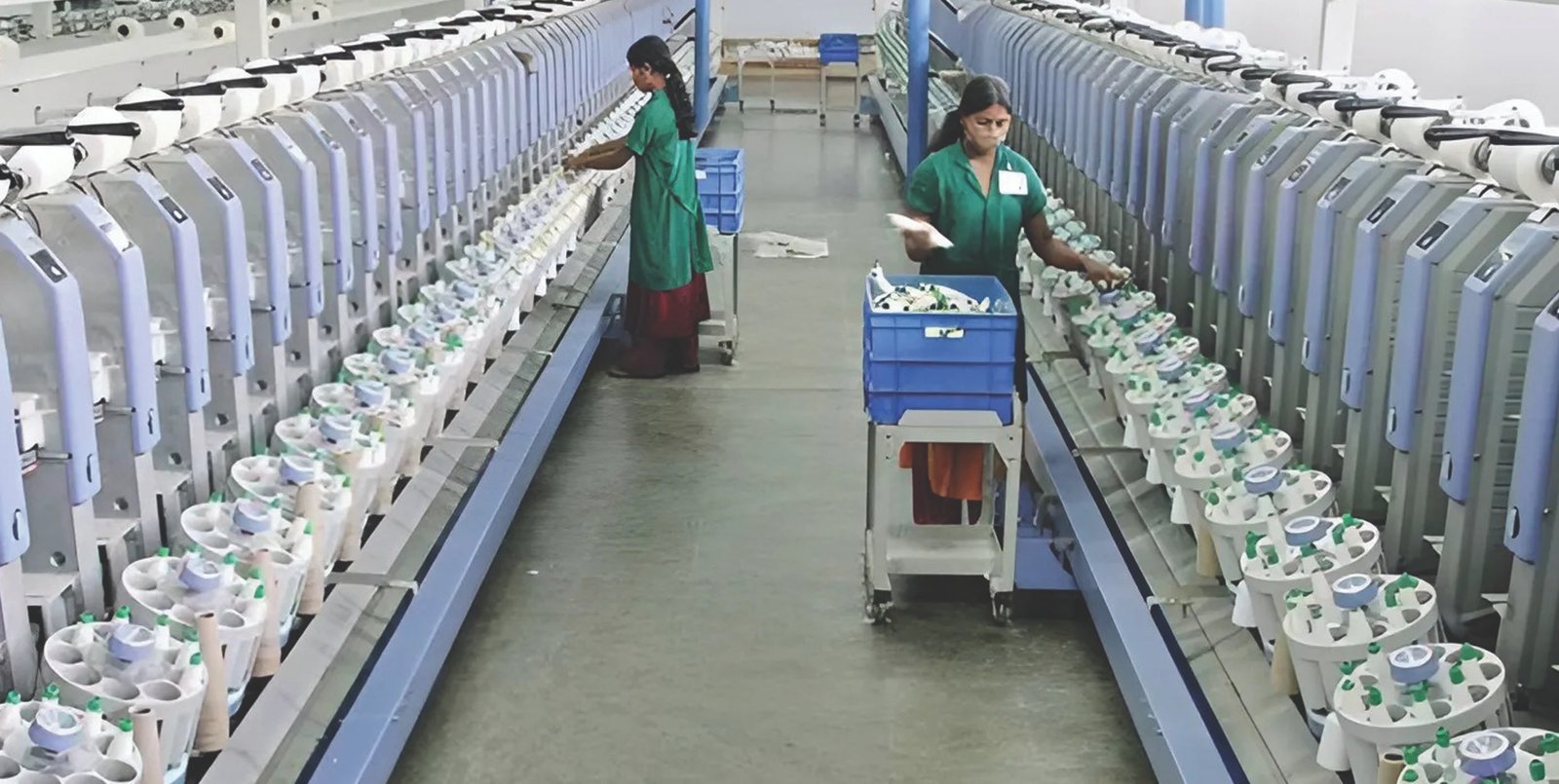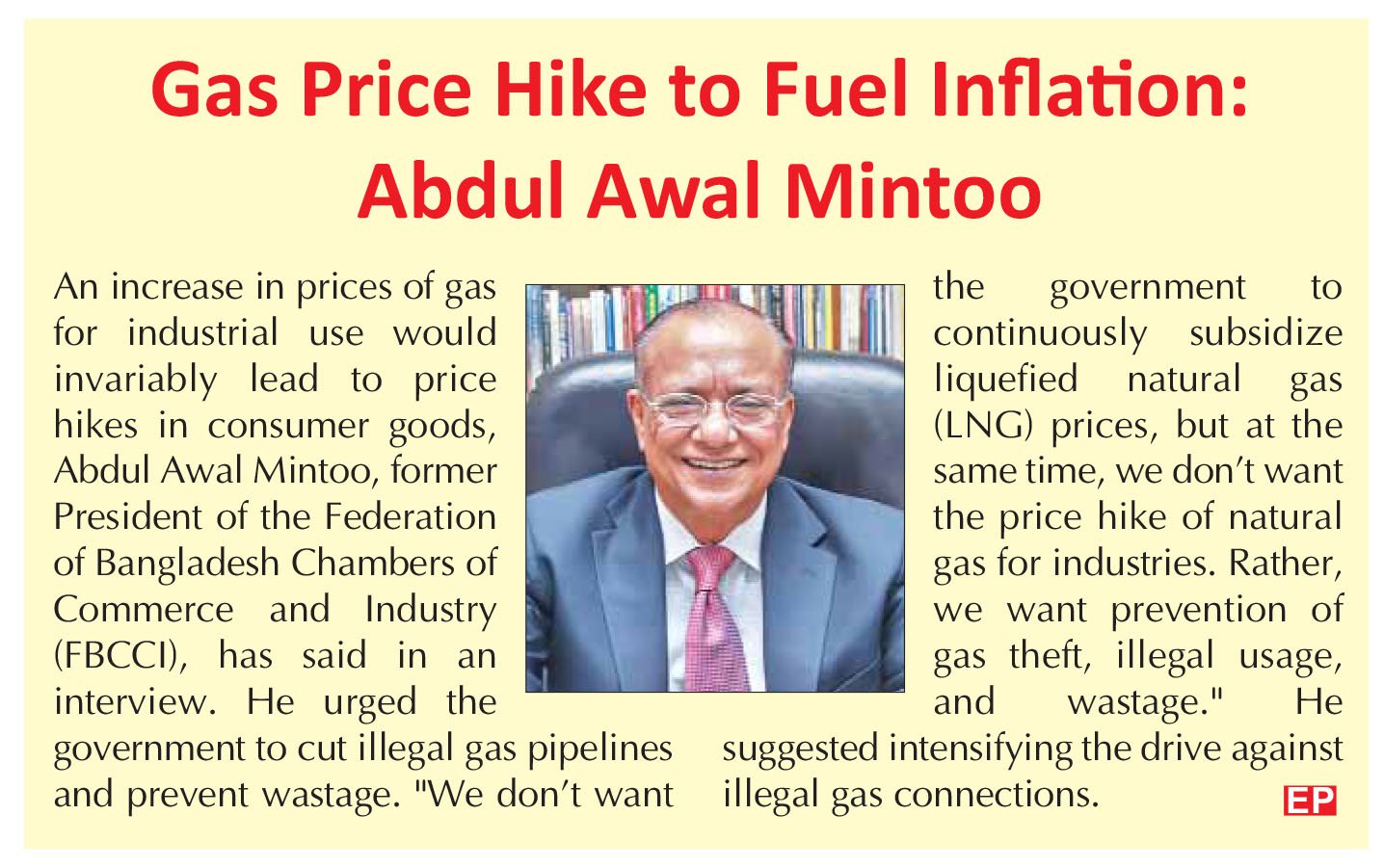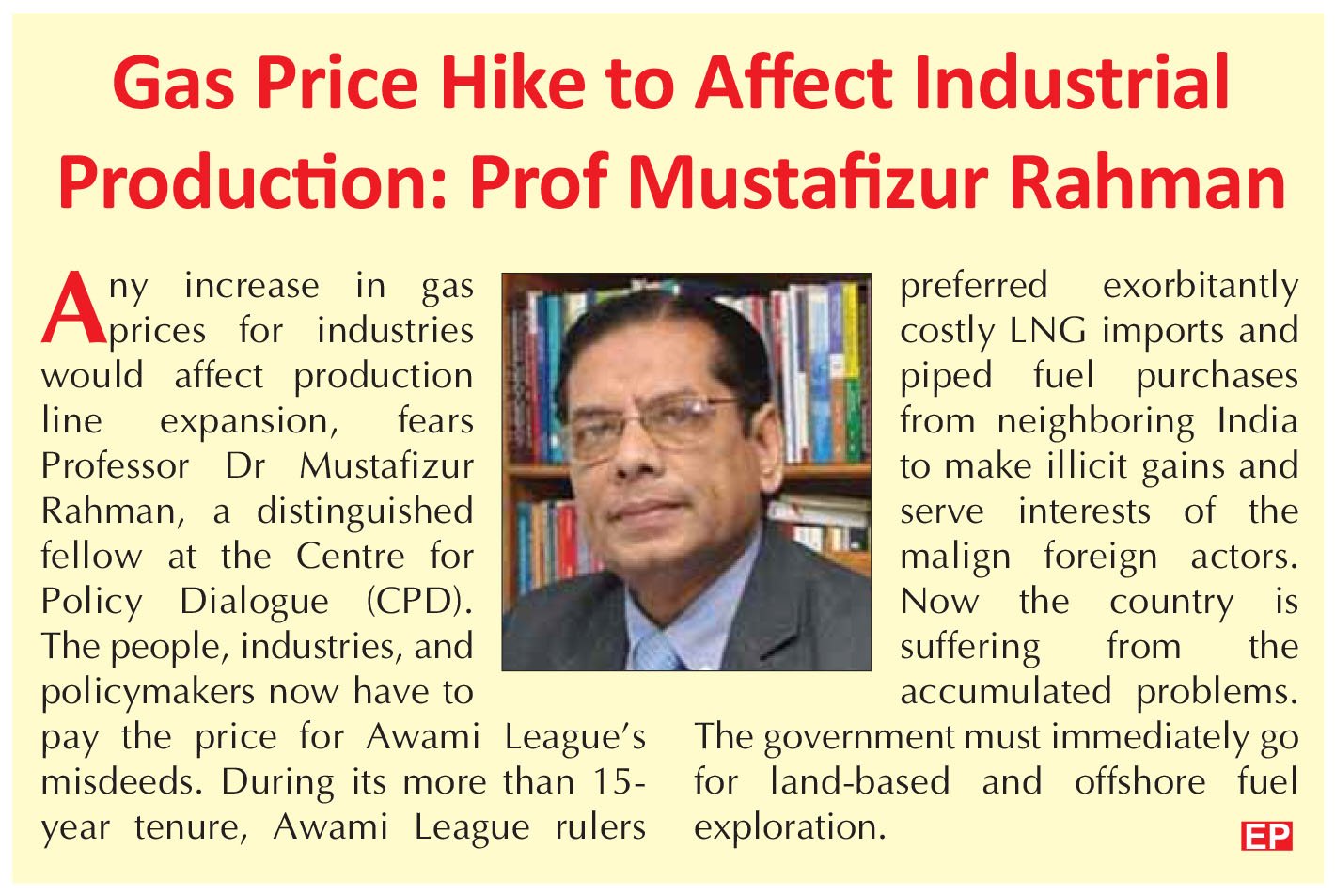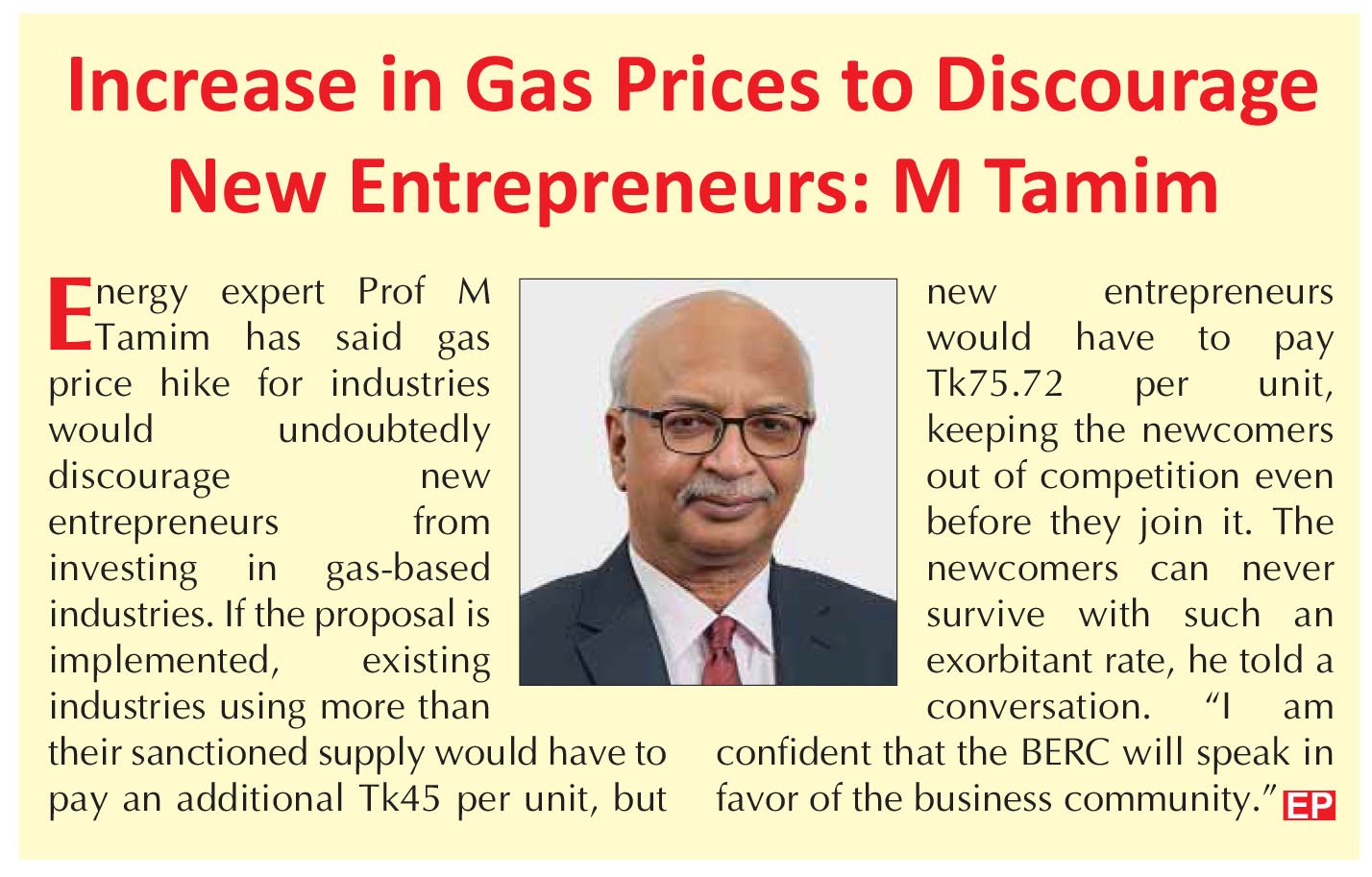
The Energy Adviser of the interim government has informed the media that increasing power tariffs and gas prices was not among the vision or priorities of the government. The government canceled the BERC amendment, restoring its sole authority to determine electricity tariffs and fuel prices. The government reorganized the BERC by posting a former chairman of Petrobangla as the chairman and engaging sector experts and academics. The BERC now has the exclusive authority to determine power tariffs and fuel prices after reviewing proposals of the state-owned enterprises (SOEs) and holding public hearings with stakeholders. From media reports, it appears that upon the advice of the EMRD, Petrobangla has submitted a proposal to BERC for reviewing gas prices because of the fluctuation of LNG prices in the global market.
If the Petrobangla proposal is approved by BERC, the industrial and captive power consumers would soon have to pay a much higher tariff for gas usage. We are not aware of the rationale of the decision by the Ministry of Power, Energy and Mineral Resources to implement a new pricing structure to reflect the fluctuating global market. Bangladesh imports LNG about 20% of the country’s natural gas supplies. A major portion of the import is done through long-term contracts with Qatar and Oman. The remainder is imported from the spot market. LNG price in the spot market is much lower now than last year. The market projection does not indicate a major change in the foreseeable future. Industrial consumers already pay the highest price of gas for use as fuel and captive power generation. Industries pay regularly and they also suffer most from poor quality gas supply.
Media reports suggest that industries would have to pay Tk 75.72 per cubic meter for their gas use beyond the sanctioned load. At present, they pay a flat rate of Tk 30.75 per unit. New industrial and captive connections will have to pay Tk 75.72 per cubic meter. Prospective consumers who got the primary approval for new connections will have to pay 50 percent of their bills of sanctioned load at the existing rate and the rest at the new rate.
Petrobangla proposed that the gas price may be determined by the cost of LNG imports calculated on the average expenditure of the previous three months' total costs -- including operational, transmission, and distribution charges -- as well as contributions to gas development, energy security, and research funds. 15 percent VAT would be imposed too.
The BERC technical committee will now review the proposal and present their recommendations for discussion and debate at the public hearing with stakeholders.

We all know that Bangladesh's energy sector is suffering from an acute crisis of fuel deficit and mainly gas supply. A significant volume of gas-based electricity generation capacity remains idle and BPDB accounts for huge capacity charges. Industries suffer from poor power and gas supplies. Many SMEs and some large industries are on the verge of shutting down businesses. Export-oriented industries struggle to meet export schedules. The previous government had assured supplying quality gas on an uninterruptible basis as an excuse to increase gas prices a few times even after taking over the price adjustment authority from the BERC. But the situation did not improve.

Experts and representatives of a consumer body on several occasions advised the government to reduce losses and increase efficiency to cut costs. The present government has taken some initiatives like canceling the controversial Speedy Power Supply Act 2010 (special act). Many ongoing negotiations with parties for projects based on their unsolicited offers have been canceled. In the long run, these will bring benefits in rationalizing the costs of development. Now at a time when the global market price of LNG is on the lower side, it is not convincing to even consider a price increase of gas for industries. There is a case with captive generation. Power distribution utilities should now be in a position to ensure quality power supply to industries. Why don’t industries use grid power and phase out gas-using captive power plants?
We are sure BERC will consider all aspects of gas use in industries including the background of Petrobangla's request for the gas price increase. We do not feel that Bangladesh has reasons for going into market-based gas pricing yet as there exists a huge deficit of gas supply. Industries cannot remain competitive absorbing the proposed gas price. Bangladesh desperately needs to ensure a congenial environment for industries to operate smoothly. Ensuring a sustainable supply of electricity and fuel to industries must be the priority. Higher gas prices will make industries sick. Industries under operation and prospective investors need to know about rational power tariffs and gas price structures. We have noticed that not only the FDI but also investment from the local private sector almost stalled now. This may have long-term adverse impacts on export earnings and the employment situation.

BPDB and BCIC owe huge outstanding payments to Petrobangla. If EMRD can ensure payment of a significant portion of this, Petrobangla would not have issues importing LNG from the global market or paying its outstanding bills to LNG suppliers and IOCs. Moreover, stern actions for eliminating system loss and enhancing the efficient use of gas will reduce the cost of operation of gas companies. BERC can work towards ensuring the improved efficiency of its licensees. At this stage, we do not think the gas price hike will be necessary. Even if it is done, it must be cost-reflective and marginal. The EMRD and Petrobangla should make appropriate contingency plans for confronting emerging challenges of gas supply during the March-August period of 2025.
Download Special Report As PDF/userfiles/EP_22_15_Special Report.pdf





